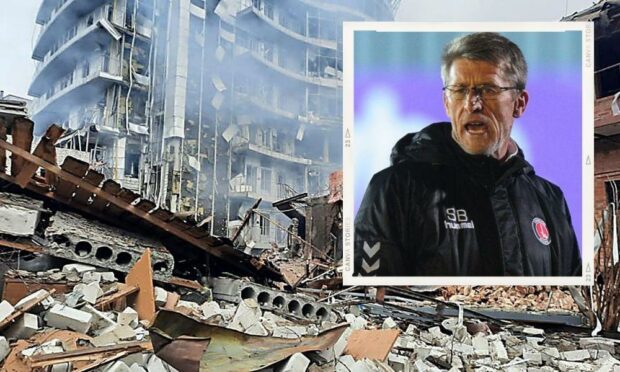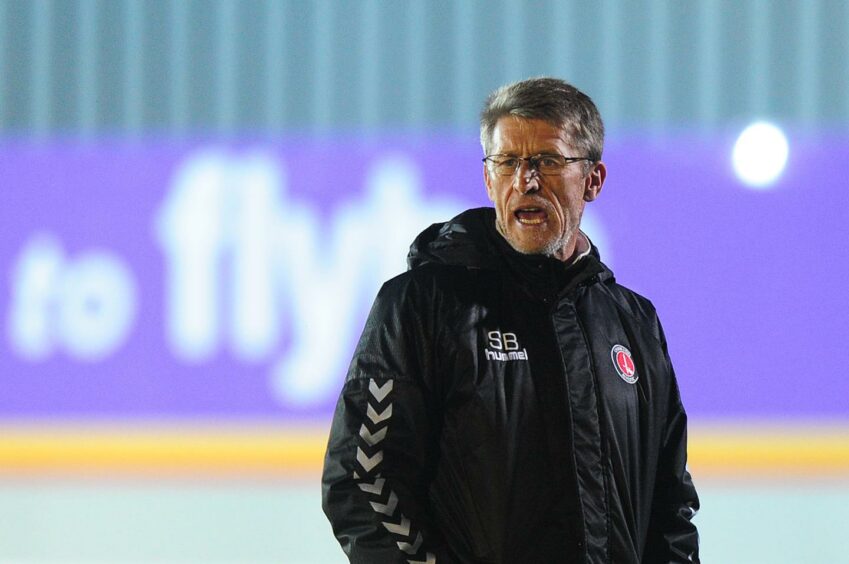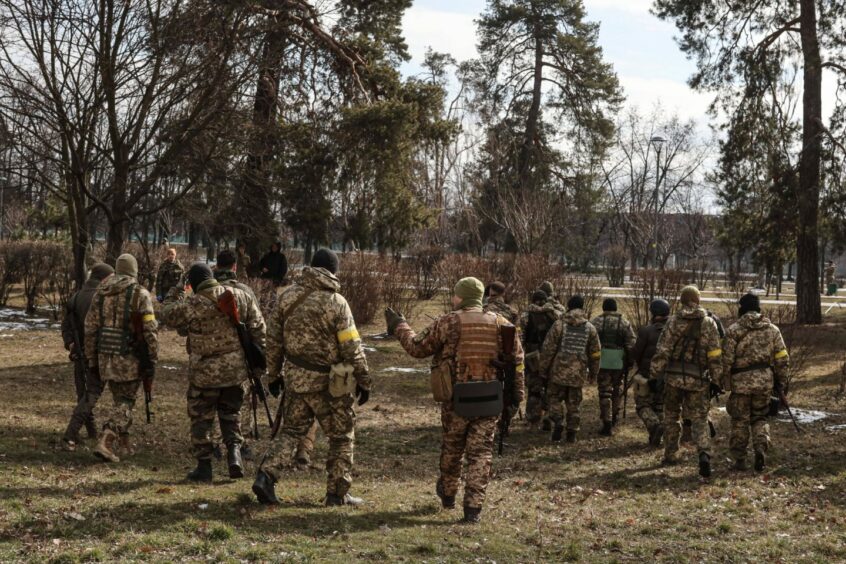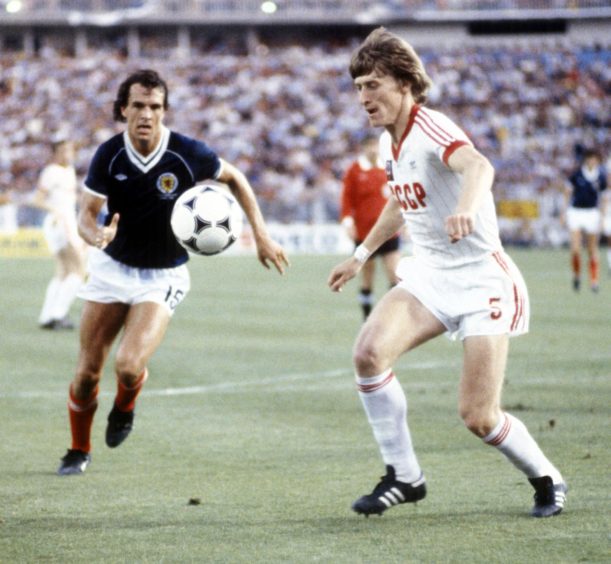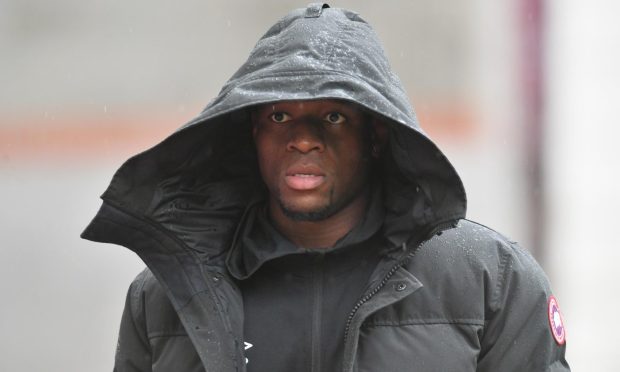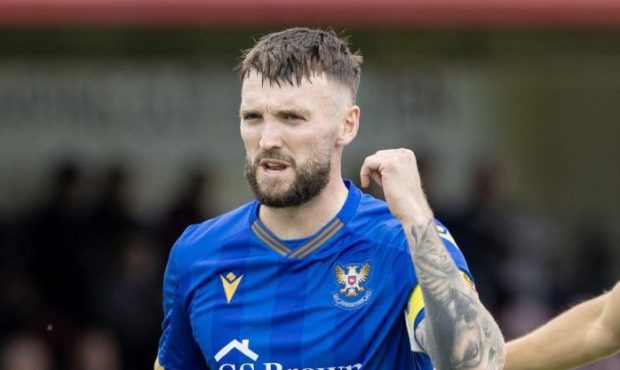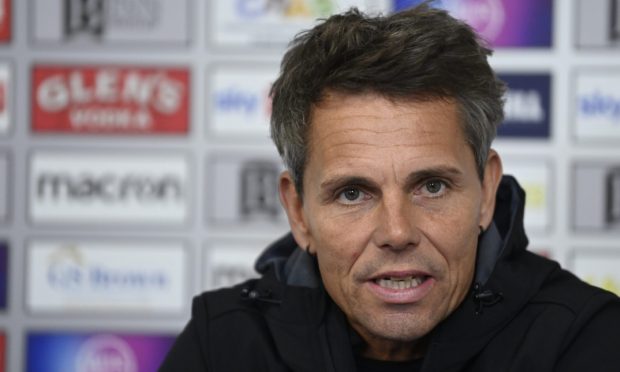Sergei Baltacha was born and raised in Mariupol, the besieged southern Ukraine port city from where hundreds of thousands of trapped locals are attempting to flee.
He got the best football education any aspiring player could wish for in Kharkiv, the part of the country being subjected to indiscriminate shelling and bombardment.
He made his name as a world class professional and won 11 trophies, among them the European Cup Winners Cup, in Kyiv, the capital that Vladimir Putin has his designs on capturing for political and symbolic reasons.
Three areas of the former St Johnstone defender’s homeland that should only evoke pride and a nostalgic glow now elicit previously unimaginable suffering and torment.
The juxtaposition of the Mariupol, Kharkiv and Kyiv that shaped Baltacha and the Mariupol, Kharkiv and Kyiv a Russian dictator is attempting to crush isn’t lost on him.
Living safely in London – and working as a coach at Charlton Athletic’s youth academy – does not ease the pain.
“It’s very difficult to live with,” Baltacha told Courier Sport. “It’s on my mind all the time.
“My life and job are here but I am always thinking about Ukraine.
“The club have been very good – they’ve said that I can take time off but I said: ‘No, no, no’.
“If I was at home I’d only be talking about it with friends and family and constantly watching the news on TV.
“So I am happy to keep coaching football.
🇺🇦 Academy Coach Sergei Baltacha has asked Charlton fans to support the people of Ukraine, his home nation.
🔴⚪ #cafc | https://t.co/f36HsGcQDw
— Charlton Athletic FC (@CAFCofficial) March 4, 2022
“I know the three cities very well.
“Mariupol is where I was born, I went to a football academy at Kharkiv and then lived and played in Kyiv for years. My brother has lived in Kyiv for the last seven years.
“I haven’t been back to Ukraine for a couple of years because of Covid but usually I would return once a year.
“All these cities are a big part of my life.
“It’s unbelievable to see what is happening to them now.”
The heroism and indefatigable spirit of the Ukrainian population will be the lasting impression they have left on the world, elite athletes among them.
Some have returned home to fight alongside their countrymen.
Fighting for their country
Baltacha was in his 30s when he lit up McDiarmid Park as the sweeper a step ahead of everybody around him in Alex Totten’s St Johnstone team – a standard of player Perth fans had never seen before and haven’t since.
Were he in his 30s just now rather than his 60s, he would have been putting his hand up to answer his country’s call as well.
“Definitely,” he said. “Definitely. That’s what I would have done.
“Men and women are staying to fight or they’re coming back to the country to fight.
“I’m so proud.
“I know so many friends and family friends who are doing that.
“People who are my kids’ ages saying ‘no’ we are not going to run from our houses and our country.
“Ukraine has always been known as a good country but now the world knows it is special.
“The people have found something deep inside of them.
“I am more and more convinced that we are not going to lose this war.
“We are not afraid and Putin will know that.
“My fear is how long the war will last and what that will mean for the people.”
All of Baltacha’s international football achievements came with the famous CCCP on the front of a red or white Soviet Union shirt.
Capped 45 times, he won the inaugural Under-20 World Cup, clinched Olympic bronze, knocked Scotland out of the 1982 World Cup and helped his team to the final of the 1988 European Championship.
Russians and Ukrainians were united in those days.
And even though they are now at war, Baltacha reserves his anger only for the man who has turned neighbouring countries with historic (and sporting) bonds against each other.
It’s Sergei Baltacha’s 63rd birthday today.
Perhaps best known in the UK for spells with Ipswich Town and St Johnstone, Baltacha played in all five of the USSR’s games at the 1982 World Cup, scoring this goal against New Zealand.
🎥 via the brilliant @sp1873 on YouTube 👏 pic.twitter.com/VfQ8la1Yl3
— 𝙒𝙊𝙍𝙇𝘿 𝘾𝙐𝙋 𝙍𝙀𝙒𝙄𝙉𝘿 ⏪ (@WorldCup_Rewind) February 17, 2022
‘We were together’
“It was 75% Dynamo Kyiv players in the Soviet Union team,” he recalled.
“My academy at Kharkiv was the main centre for developing players. The Russians couldn’t develop the same standard of player.
“But we were together.
“It does make me feel sad when I think back.
“There were 15 different republics with 15 different groups of people but we never had any problems with each other in the Soviet Union.
“I’m talking about football and life in general – we never said: ‘We’re Ukrainian and you’re Russian or Georgian’.
“The morals of the political leaders were much higher.
“Putin makes money for himself and people close to him – he steals from Russians and Ukrainians.
“In my time the government worked for the people, not the other way around.
“I knew some of those in charge of the Ukraine government then and they were ordinary people who loved their country and wanted to do the best for the country.
“They weren’t mafia, out to make money and then live in other countries with that money.
“Where are the morals in stealing money from ordinary people who are working hard?
“This is not a war between Russian people and Ukrainian people. It is a war between Putin and the Kremlin and the Ukrainian people.
“I’ve been called by Russian friends who are embarrassed and there are others who don’t have the correct information to know what is going on in their name.
“I know it’s not easy for Russian people to go out in public and protest but there is no other option.”
